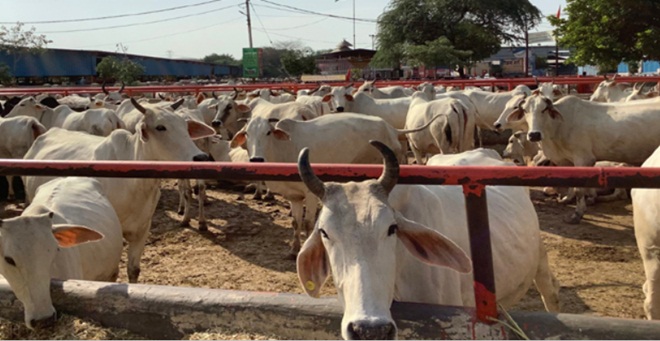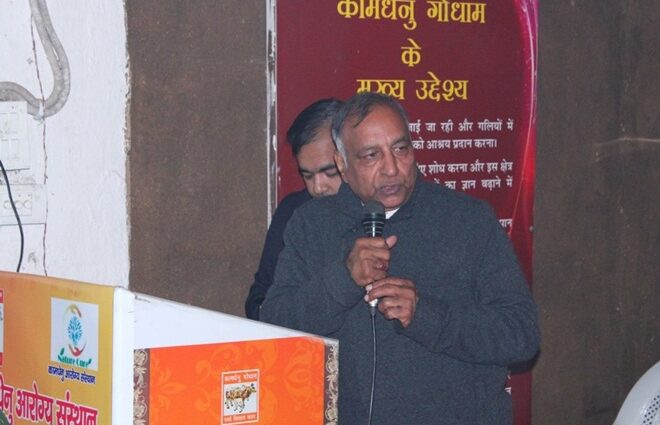Nirbhay Kumar
New Delhi: While jury is still out on milk from native cows being more beneficial than hybrid cows, ex-IAS officer and former chief of country’s apex animal welfare body (Animal Welfare Board of India) Dr SP Gupta has contended that milk (A2) from deshi cow is considered amrit not without reasons.
Listing out very many benefits of A2 milk and rich rewards of rearing indigenous-breed cows in his forthcoming book Panchgavya, the former bureaucrat has put forward a bunch of scientific studies to prove his point. He has noted that milk and other panchgavya (the five key cow products) from indigenous breed cows can not only protect human beings from deadly disease like cancer but also cure lifestyle health issues of hypertension and blood pressure.
Despite representing a government which has repeatedly made cows an election issue, Minister of State for Agriculture Sanjeev Kumar Balyan told Lok Sabha last year that no studies had been carried out so far to suggest milk from indigenous cow has superior qualities or it could help in fighting incurable diseases.
“As informed by Indian Council of Agricultural Research (ICAR), ICAR has not undertaken any study on benefits of A2 milk in human beings,” Balyan said in Lok Sabha in March last year.
Replying to a question the previous year in the Upper House, the Agriculture Minister had said that no research has been conducted on the aspect of milk of cows of indigenous breeds possess greater nutritional value and resistance power to fight against incurable diseases.

While A1 milk is obtained from cows of Western origin like Holstein Friesian, Jersey etc. the A2 type of milk is obtained from cows of Indian origin also referred as deshi cows. The milk productivity is higher in case of Western origin cows, it is much lesser in Indian cows.
As per Basic Animal Husbandry Statistics-2019, average productivity of Indian breed of cattle is 3.85 kg per day per animal. As against this, average yield of cross breed cattle is nearly twice at 7.85 kg per day per cattle.
Dr SP Gupta is, however, of the opinion that productivity alone cannot be the reason for rearing foreign breed cows. He cited the works of New Zealand-based food consultant Keith Woodford to drive home the point that A2 has far more superior nutritional and medicinal values.
“It was found that A1 milk was causing Type I diabetes and other fatal diseases among children below five years. This was revealed by a study in New Zealand. Then experts started searching for A2 milk and it was found to be in Indian cows. In another scientific study in America it was concluded that milk and other products from a well-bred cow prevent outset of any major ailment in humans,” said the retired officer in his book he has co-authored with his wife Shashi Gupta.
In view of their contribution to human and soil health, former principal scientist of the National Bureau of Animal Genetic Resources (NBAGR) DK Sadana had also called for national-level policy to protect native breed of cattle.
Known for his administrative acumen while holding key positions in Haryana government, Dr Gupta now runs Kamdhenu Arogya Sansthan. The facility at Bissar Akbarpur near Gurgaon has over 250 cows of various native breeds.
Dr Gupta regularly organises various events to propagate the benefits of a cow-based agricultural economy.
Speaking at different forums, he has been advocating the advantage of cow-based economy which can substantially raise farmers’ income thus making India Aatmanirbhar.

